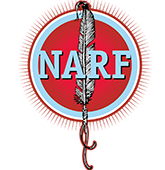Congress Passes Two Bills to Help Protect Native Children
Senator John Barrasso (R-WY), Chairman of the Senate Committee on Indian Affairs, praised the Senate’s passage of S. 184, the Native American Children’s Safety Act and S. 246, the Alyce Spotted Bear and Walter Soboleff Commission on Native Children Act. Read the press release from the Senate Committee on Indian Affairs. Highlights of the Native … Read more
